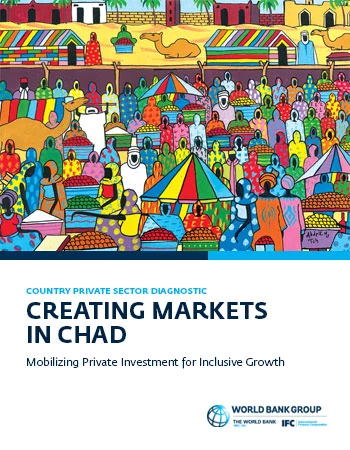Mobilizing Private Investment for Inclusive Growth
Chad, the largest landlocked country in Africa and one of the least developed countries in the world, is grappling with the confluence of three challenges: an ongoing political transition, security challenges associated with regional conflicts, and the severe impacts of climate change. The oil boom of the 2000s provided an unprecedented revenue windfall, but failed to accelerate development. The country’s economic situation has since been further weakened by the COVID-19 pandemic and recent food price inflation.
Host to over 450,000 refugees from neighboring countries, Chad has made limited progress on poverty reduction and faced an external debt crisis in 2021 as a result of volatile oil prices and a rising debt service-to-revenue ratio – which, without debt restructuring and donor support, threatened to exacerbate liquidity problems and cripple public and private sector activities alike.
In order to reduce macroeconomic vulnerabilities and to ensure a more equitable distribution of the fruits of economic growth, the country must reduce its reliance on oil and cotton exports. A private sector-driven development trajectory is crucial for generating job opportunities for a labor force that is estimated to grow by 235,000 workers every year, with more than half of the country’s population younger than age 24.
Recognizing the potential for Chad’s private sector to contribute more effectively to growth, resilience, and recovery, the Country Private Sector Diagnostic (CPSD) of Chad examines growth opportunities in agro-industrial value chains, where Chad has a remarkable comparative advantage and which can represent a bedrock for export diversification and structural transformation—such as sesame, gum Arabic, and livestock. The report also seeks to address constraints in access to energy, finance, water, transport and digital connectivity, as well as health and human capital accumulation. Finally, the CPSD lays forth a roadmap of targeted, actionable policy recommendations that could unleash the private sector’s potential in the next three to five years.
Download
